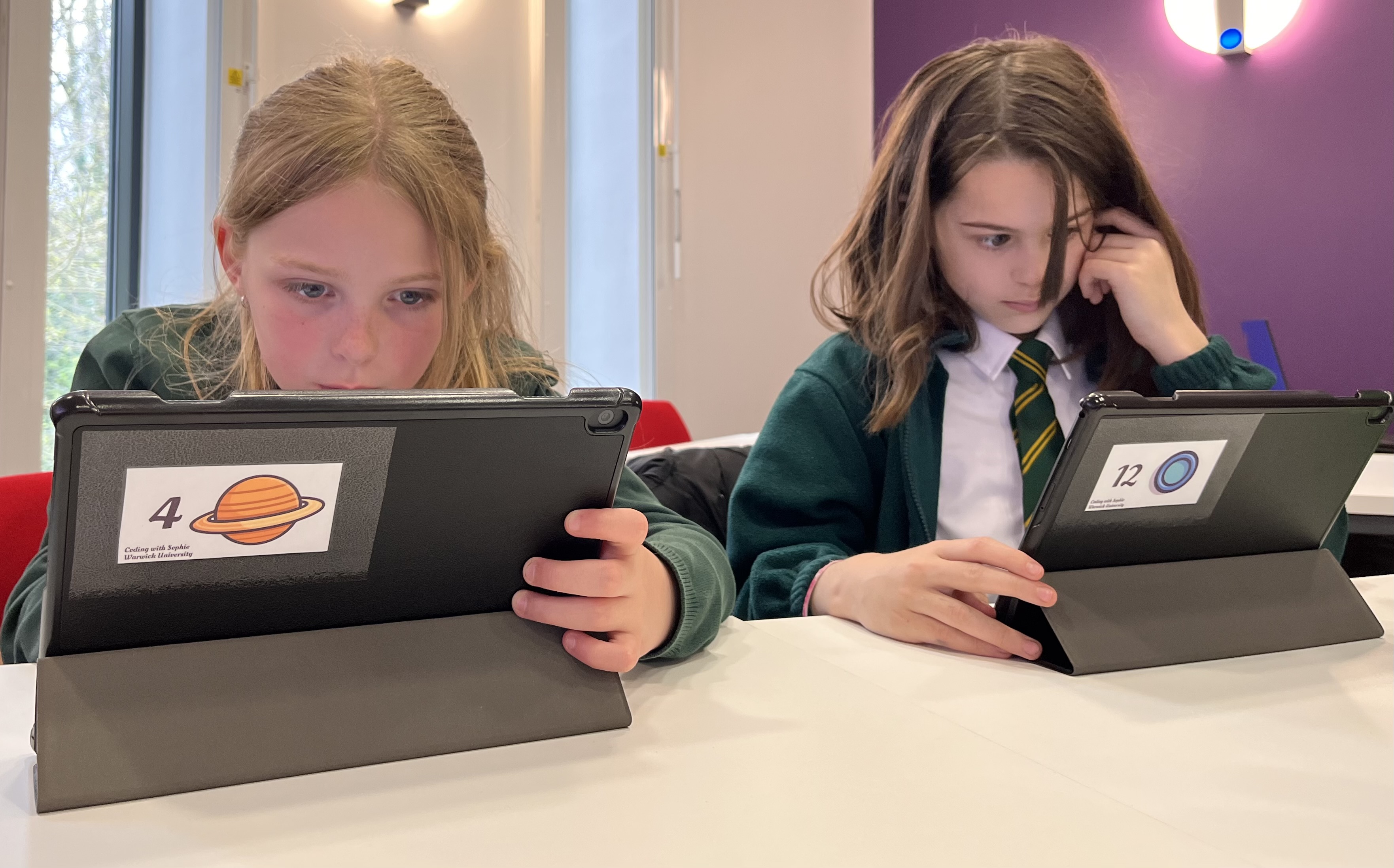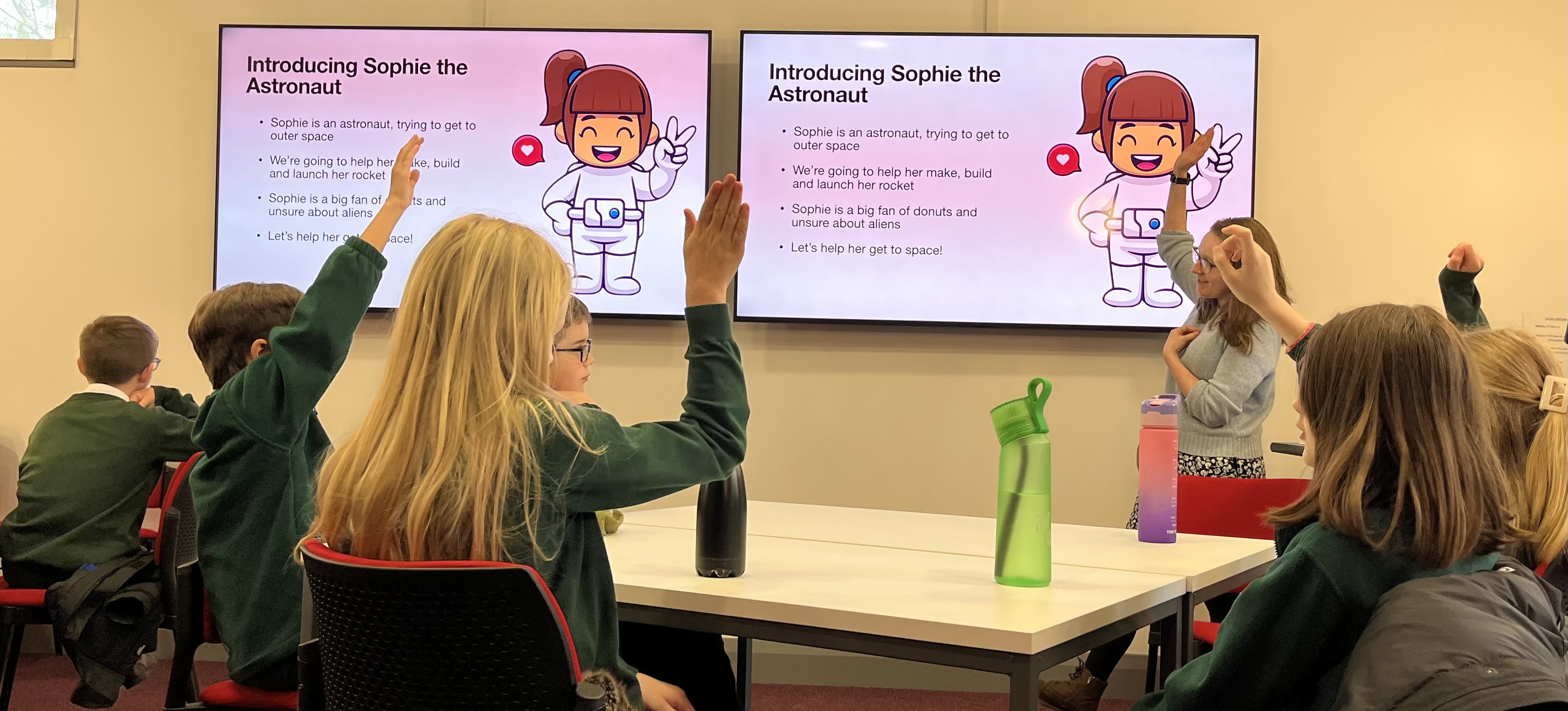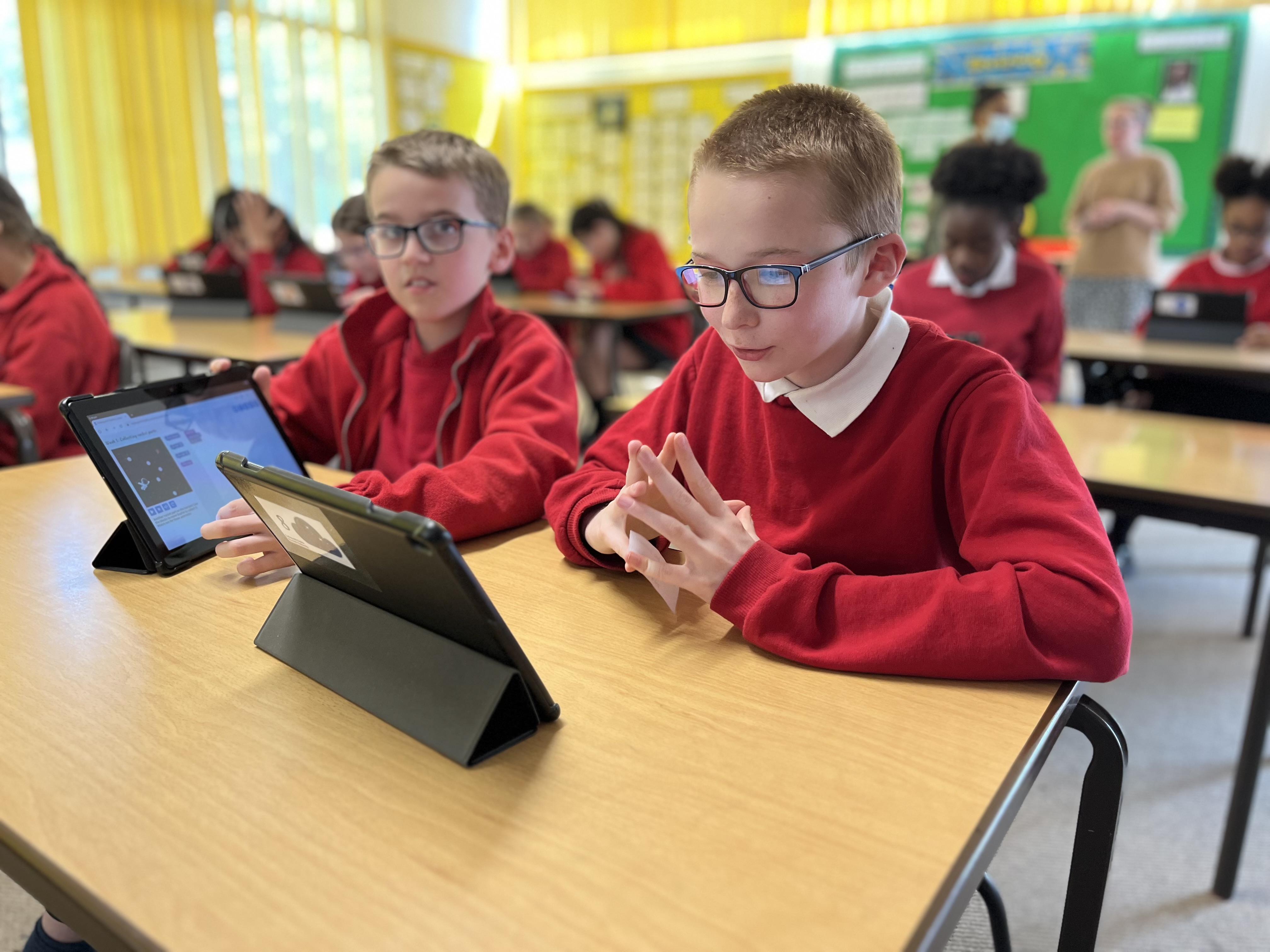
Coding is a set of instructions used to tell devices such as computers, mobile phones and even traffic lights and aeroplanes what to do.
People who work in coding say it's like learning a language that tells the computer what you want it to do.
Coders, or programmers, are people who write the programs behind everything we see and do on a computer.
Rhiannon Wilkins, BBC News
Why Coding
In a modern context the skills needed to write programs and understand coding logic are essential to a child's education. Coding fosters problem solving, digital literacy, resilience and creativity - skills which can be applied anywhere in life. To this end, every child should have the opportunity to learn programming and to appreciate its numerous applications. Successful coding programs for children should be accessible, should meaningfully teach students the fundamentals of coding and are able to inspire children to pursue STEM.
From a career perspective, we also know that STEM skills will be key to future professions. Of these, programming will be one of the most highly sought after skills: in the top 20 job roles that are increasing demand across all industries, at least 10 of these will require a STEM background (Future of Jobs Survey 2020, World Economic Forum). In the UK this pressure is recognised by considerable investment into representing coding in the National Curriculum ( £0.5M in 2014 and £100M in 2020).
A background that includes programming is not just useful in the tech industry. Programming is also used in the music industry by musicians and sound engineers, in manufacturing, the gaming industry, architecture, graphic design and finance just to name a few examples.

Why Coding with Sophie
There are many free (and paid) resources for children to pursue coding. Along with the best of these, Coding with Sophie is language agnostic and block based, focusing children on the logic of programming.
Distinguishing itself from other programs, Coding with Sophie is additionally structured to complement the key components of the UK National Curriculum for Key Stage 2 (7-11 year olds). Here we focus on skills like functions, conditionals and repeating code as well as code logic and debugging. These are all apsects that form the basis of coding in any language and will help children to build a strong general foundation.
Additionally, Coding with Sophie has a space and physics theme, with an entire lesson about black holes and unplugged physics activities to accompany the coding lessons.
Why us
Coding with Sophie was initiated, designed and build by Rebecca Nealon, Farzana Meru and Ally Caldecote. Importantly, each of us demonstrate that although we do not have formal degrees in computer science, coding is integral to our careers. This shows that anyone can learn and use coding and that coding is not isolated to specific study pathways.
Dr Rebecca Nealon, Stephen Hawking Fellow
The first time I did programming was using ‘Turtle’ in primary school to draw shapes. At university I studied programming as part of my undergraduate studies in Aerospace Engineering and Science. Programming has since formed the core of my subsequent research as an academic. I use a combination of Fortran, python, bash and Java for my work which uses high-resolution 3D simulations to model accretion discs (like those around young stars that form planets or those that surround black holes).
Dr Farzana Meru, Royal Society Dorothy Hodgkin Fellow
The first time I started coding was in the year before I went to University. I had never engaged with it before then. However, it is so important for my work as an Astrophysicist. In recent years I have been a real advocate of children engaging with coding at a young age and have even overseen the development of coding programmes for primary and secondary aged children. I believe that coding can be accessible to very young children if presented in the right way (and have seen young children as young as 5 start engaging with it). Given the way the world of work is looking in the future, it is clear that coding is a skill that can give children a big step up in their future career options.
Ally Caldecote, Physics Outreach Officer
Supporting the delivery of STEM in schools is important for many reasons. The Coding with Sophie workshops develop problem solving skills and encourage students to try things out to see if they work, making changes as they go along. My understanding of the National Curriculum makes sure that students are working on challenges that stretch them just the right amount.
Our program acknowledges funding through Rebecca Nealon's Stephen Hawking Fellowship and Farzana Meru's Royal Society Dorothy Hodgkin Fellowship.
Thanks

Coding with Sophie has benefitted strongly due to our devoted, dedicated team of testers. They found all manner of bugs and gave fantastic advice that improved the lessons. They are:
- Josie
- Laurence
- Marcus
- Amy
- Amena
- Sahl
- Safiyeh
- Teresa
- Brodie
- MPU students of Manor Park
Delivery of our classes is also only possible with our team of great volunteers. They are:
- Gareth
- Mairi
- Geraldine
- Marina
- Amena
- Rebecca M
- Taf
- Yoshi
- David
- Omar
- Kendall
 Coding
Coding